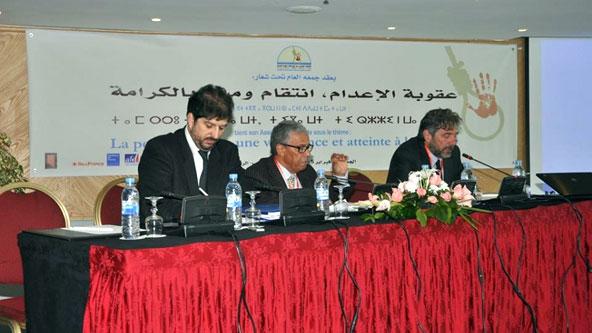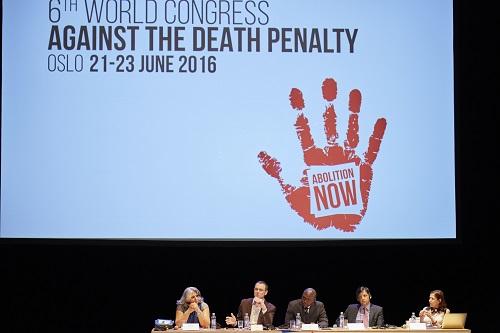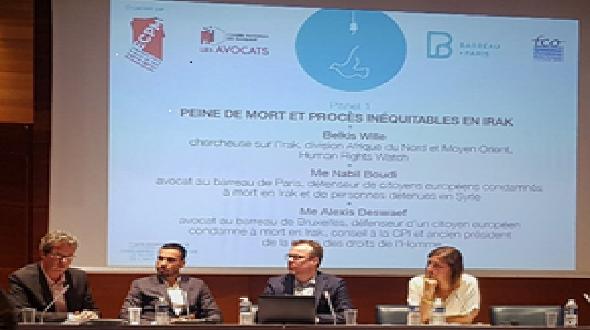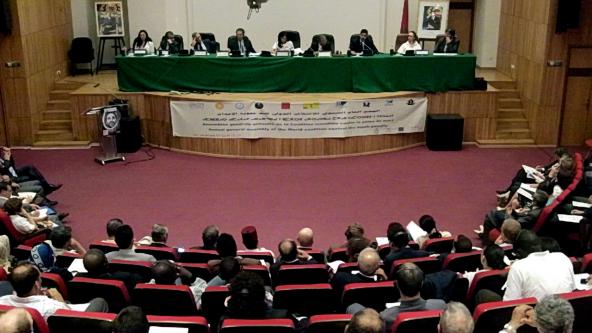
Moroccan Coalition tackles death penalty for terrorism
MENA
The Moroccan Coalition, which dedicated its annual general meeting to the theme “the death penalty, revenge and damage to dignity”, reported that the Opening Session welcomed a hundred of diplomatic, political, academic, parliamentary and civil society representatives personalities from the Middle East and North Africa (MENA) region and the European Union.
The Moroccan authorities were represented by Mustapha Raissouno, member of the National Human Rights Council, and Abderrazak Rouane, secretary general of the Inter-ministerial Delegation for Human rights.
Two key workshops took place during the AGM: one concerning “the death penalty in the MENA region” which saw national coalitions from Morocco, Algeria, Tunisia, Lebanon, Jordan and Mauritania share their experience experience; and a session on “Terrorism and the death penalty” during which activists, lawyers and terror victims shared discussed ways to address the consequences of terrorism on abolitionists strategies.
“The room was always full”
For the first time in an Arab country, a public debate was held on the theme of terrorism and the death penalty. According to Together against the death penalty (ECPM), a partner in the event, the issue generated keen interest among the participants: “The room was full from 3pm to 8pm, said ECPM’s programmes director Nicolas Perron. The exchanges were really rich. The audience asked a lot of questions.”
As a world plague which has not spared the Arabic world, terrorism rekindles the death penalty, ECPM noted. In Jordan, six terrorists were executed at the beginning of the year after a Jordan pilot was burnt alive by so-called Islamic State militants. In Pakistan, a few months after the Peshawar attack that killed 141 people, including 132 children, the government announced the lifting of the moratorium on executions, in place since 2008, for terrorism cases.
In Cameroon, under Boko Haram’s threat, the president signed anti-terrorism legislation in December that extends the scope of the death penalty. But is the death penalty an efficient solution to fight terrorism? Is it a viable and just response? The debate is far from being settled. “In light of the interest the subject aroused in Rabat, we intend to repeat this debate in other countries in the Middle East and North Africa, said Nicolas Perron. We wish to make this a regional issue.”
Thirty educators trained to teach abolition
The Moroccan Coalition’s members then approved its activity report and elected new steering committee members. The Maghreb Coalition Against the Death Penalty gathered its own steering committee, which decided to act on the case of Mohammed Cheikh, a blogger sentenced to death for apostasy in Mauritania.
In parallel, a workshop entitled « Teaching abolition : exchange of experience and tools » was led by Mustapha Mezroui, manager of the « Teaching abolition of the death penalty » project of the Moroccan Human Rights Organization; Tanya Awad Ghora, member of the Lebanese Association for Civil Rights; and Marianne Rossi, Education project manager for ECPM. This Thirty human rights activists and Moroccan teachers took part in the session.






